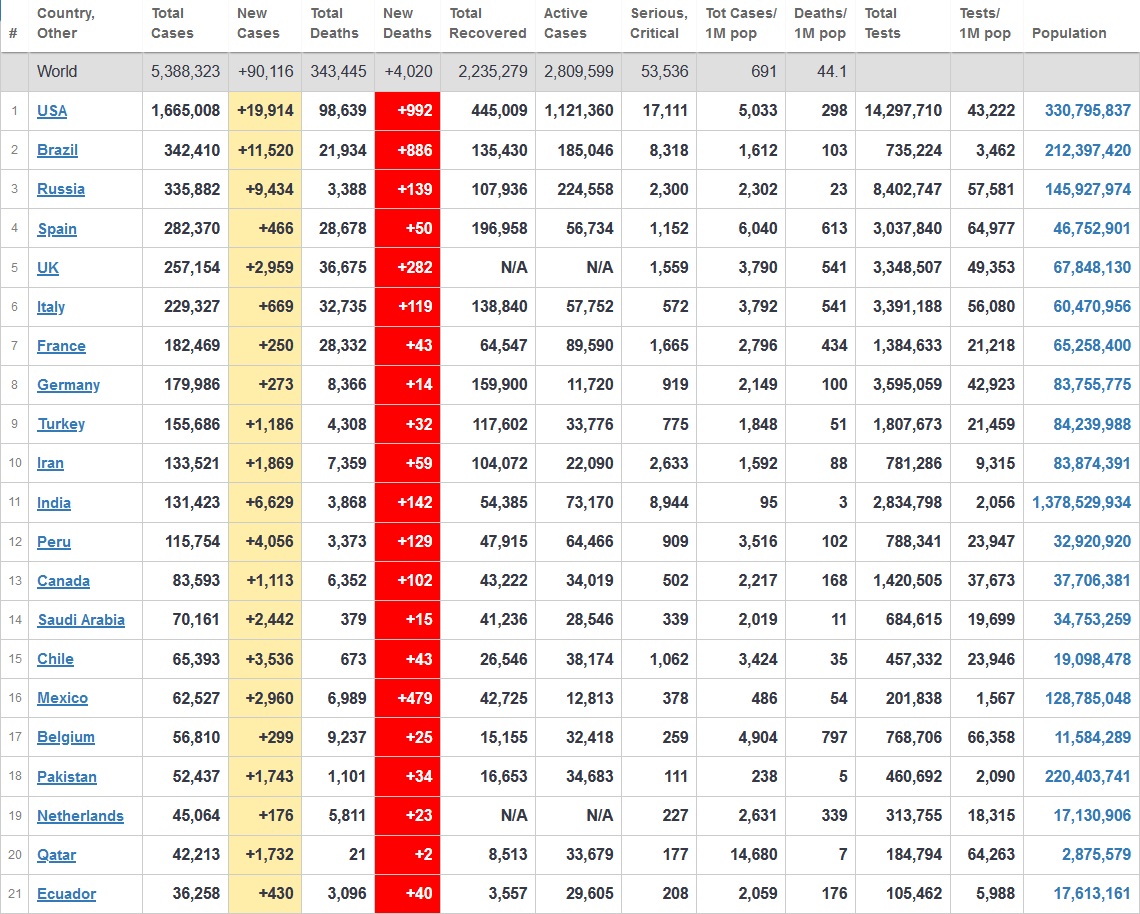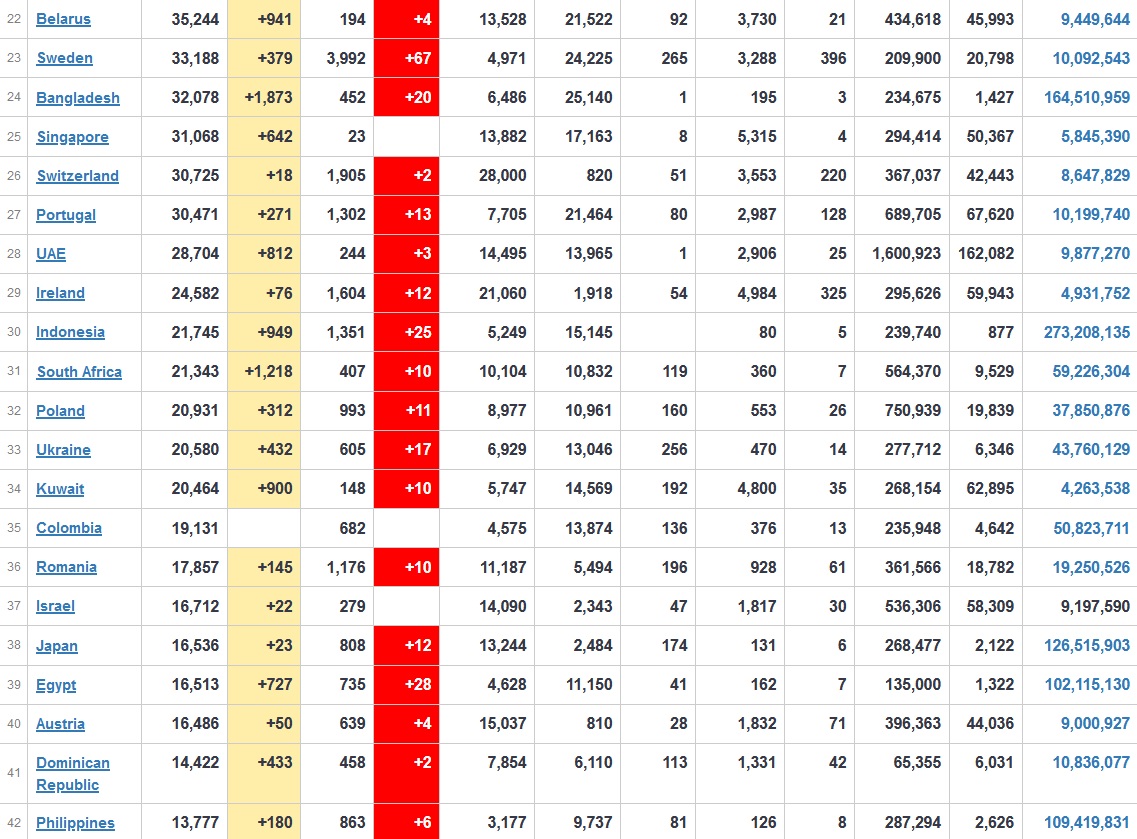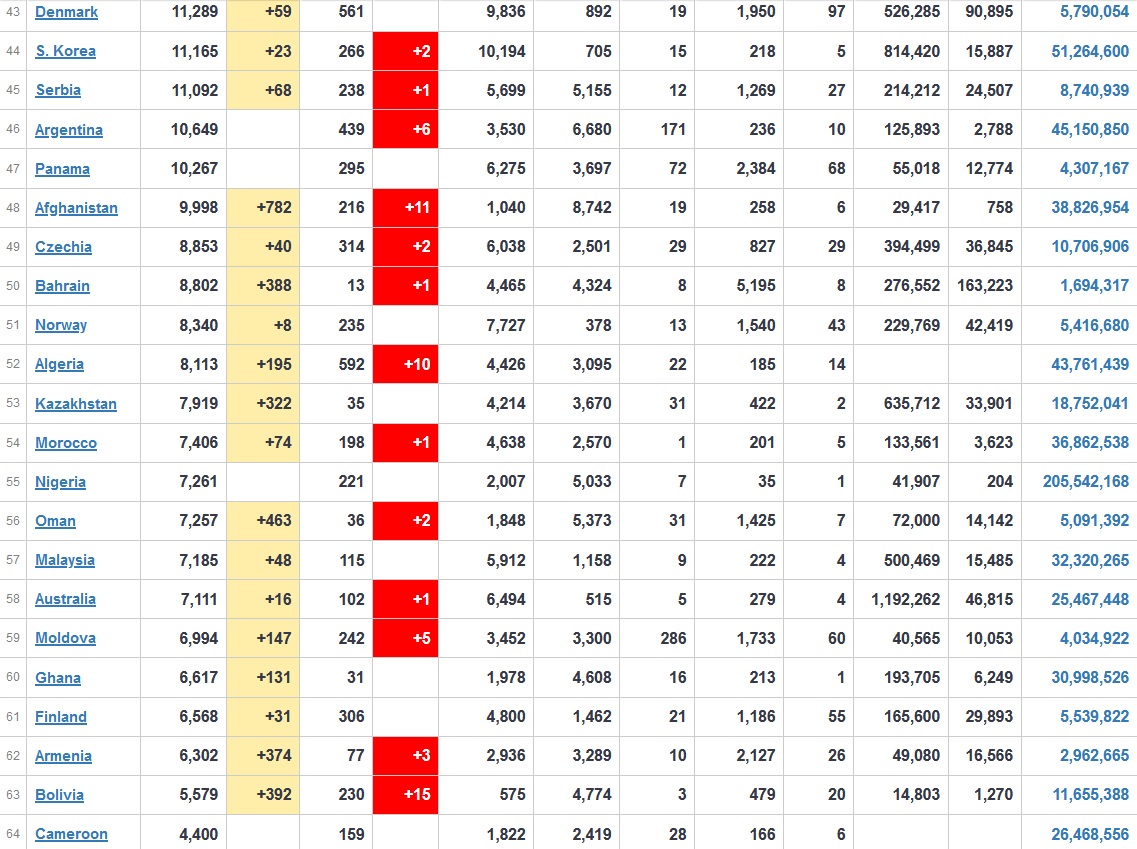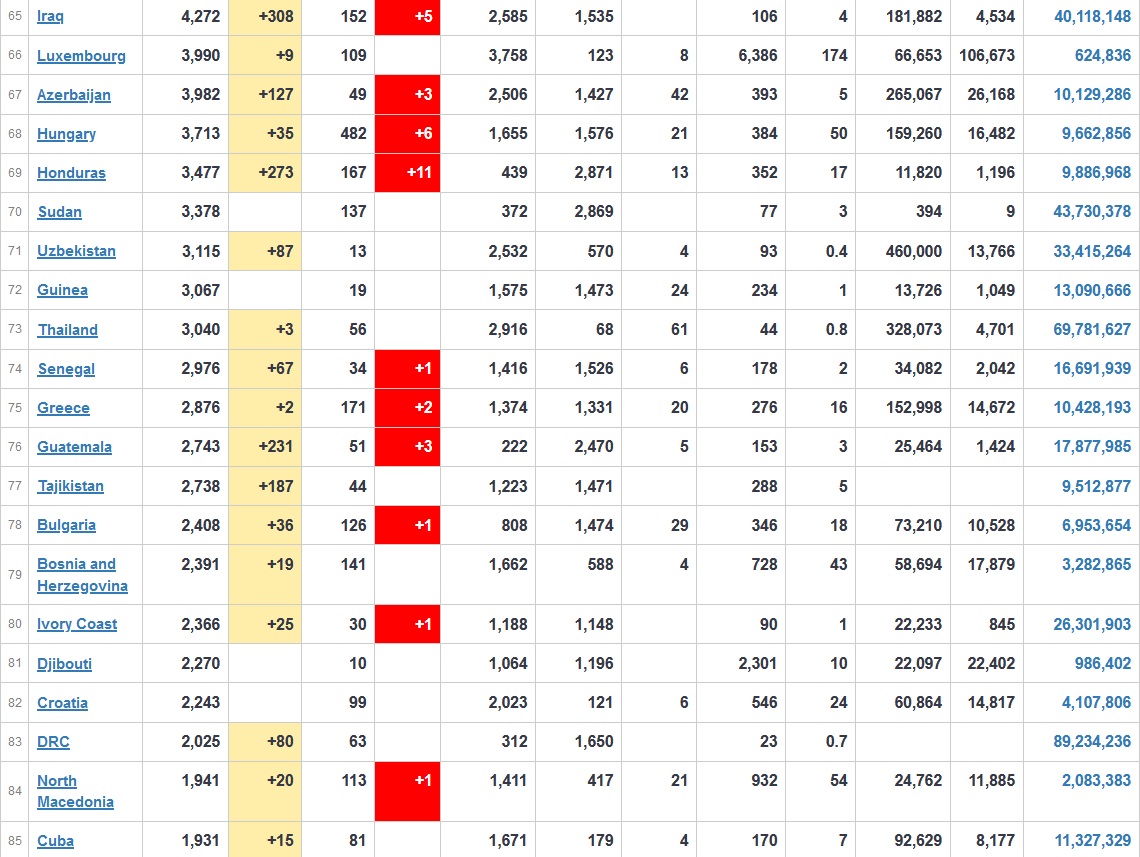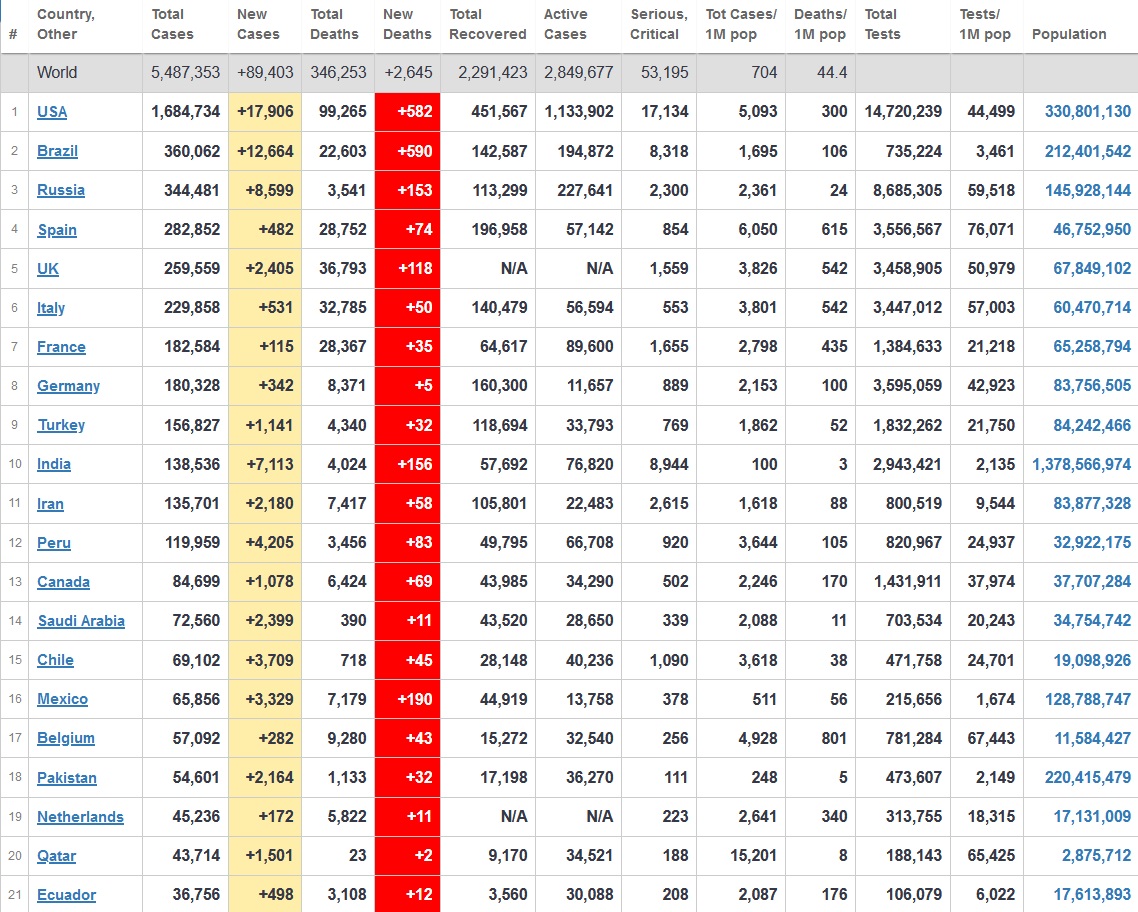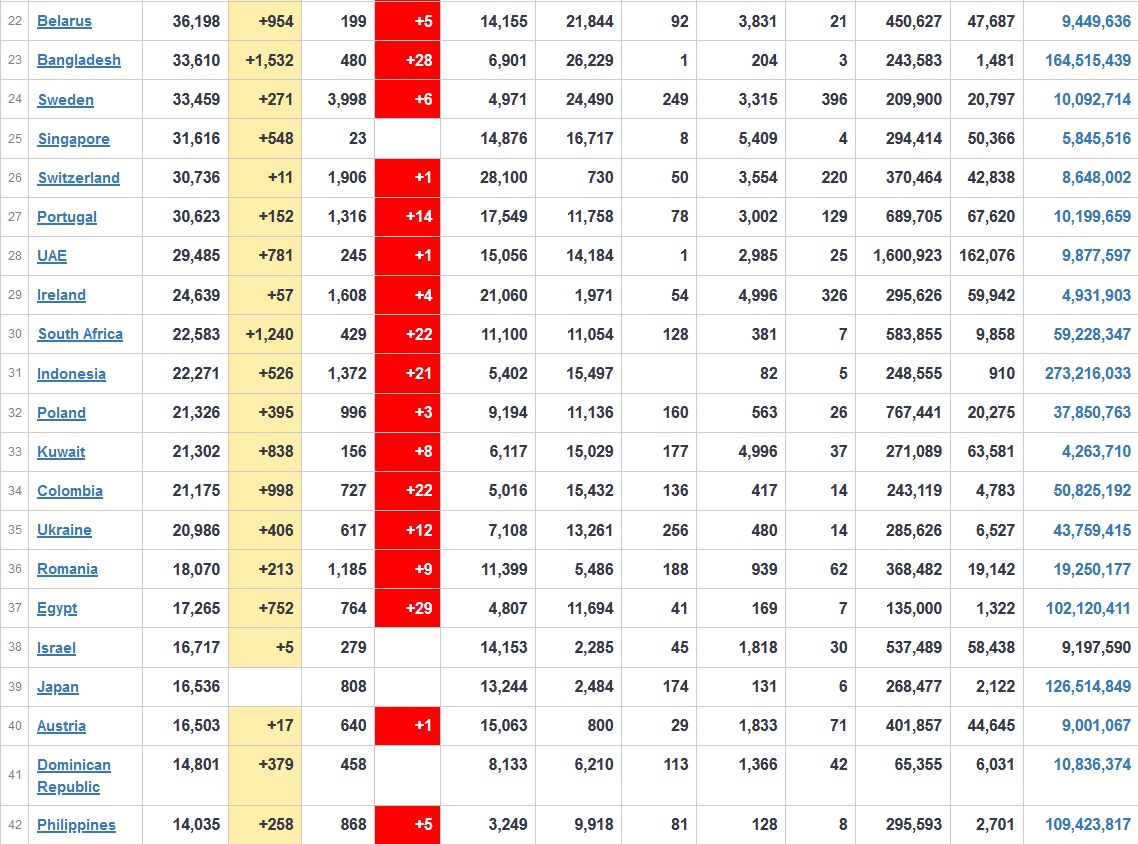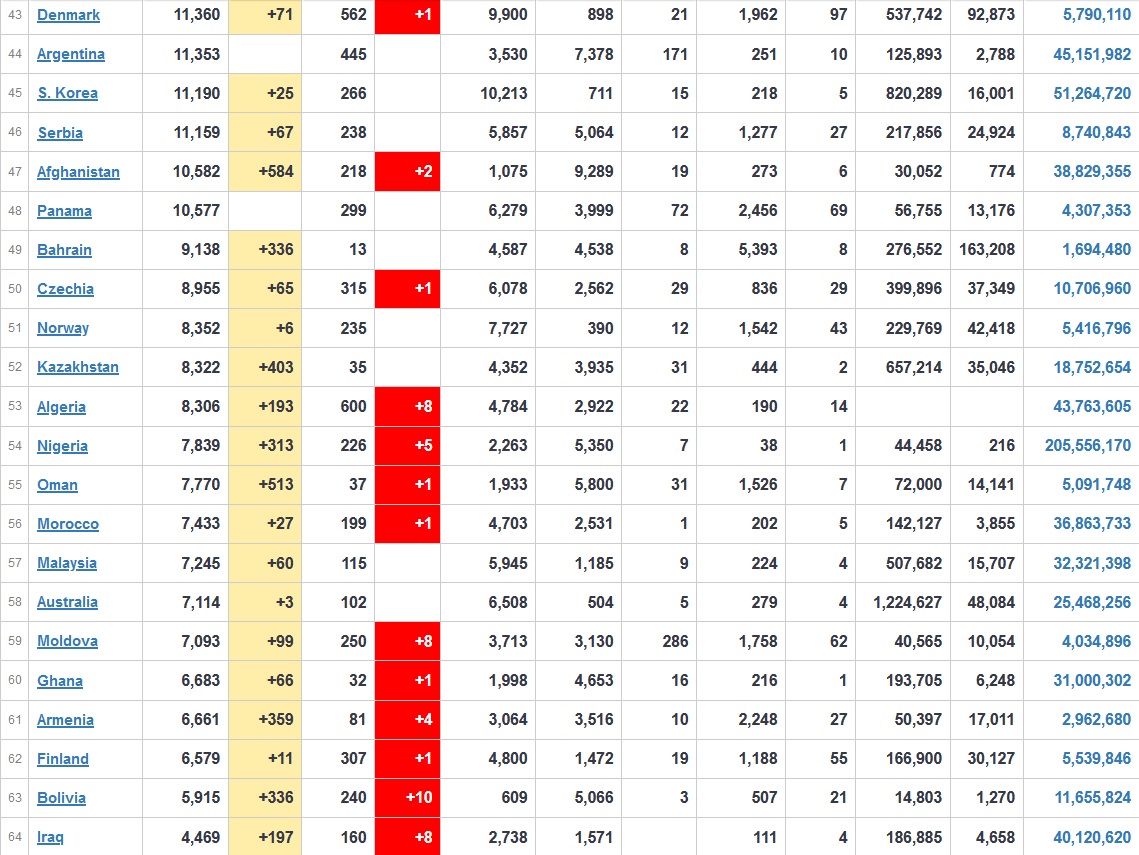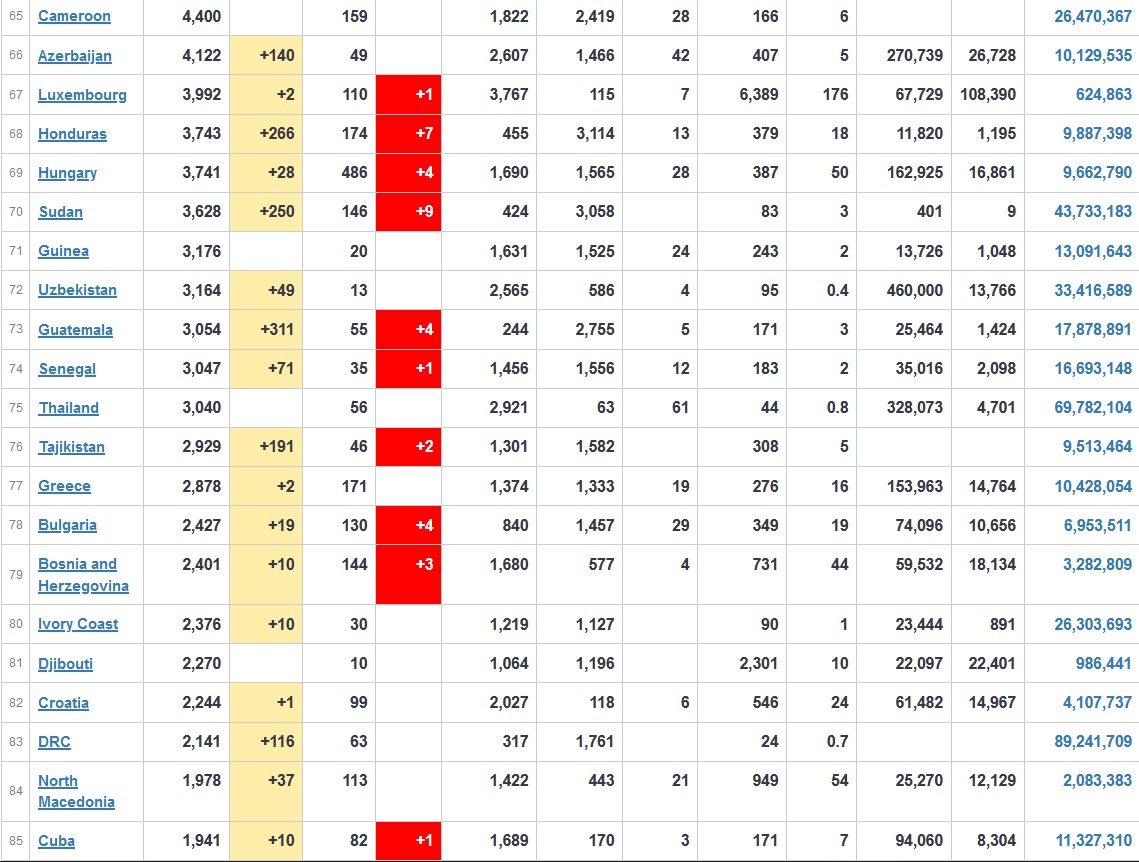It looks like you're using an Ad Blocker.
Please white-list or disable AboveTopSecret.com in your ad-blocking tool.
Thank you.
Some features of ATS will be disabled while you continue to use an ad-blocker.
share:
a reply to: angelchemuel
Thats an absolutely brilliant interview.
Dudes like my brother from another mother lol
He brings up so many factors that seem so critically important, yet we are overlooking them.
I would add in EMFs to air pollution, soil depletion, product contamination, vaccines, etc..
Folks should give that a watch, seriously. I think we have been programmed to look at everything through the lens of a single pathogen and we are missing so much because of it.
Thats an absolutely brilliant interview.
Dudes like my brother from another mother lol
He brings up so many factors that seem so critically important, yet we are overlooking them.
I would add in EMFs to air pollution, soil depletion, product contamination, vaccines, etc..
Folks should give that a watch, seriously. I think we have been programmed to look at everything through the lens of a single pathogen and we are missing so much because of it.
edit on 23-5-2020 by Serdgiam because: (no reason given)
Stupid. Stupid. Stupid.
www.khon2.com...
Did I mention, stupid?
In addition to facing quarantine violation charges, Zhiryada faces an additional charge of cruelty to animals.
He posted a video, among others, showing him shooting a feral chicken with a spear gun in an area parking lot. They say the pair arrived in Honolulu last Saturday, indicating they were staying at a friend’s condo. They immediately began breaking quarantine requirements and “showed off their escapades by posting their adventures on social media sites as they traveled to various locations around Honolulu.”
www.khon2.com...
Did I mention, stupid?
edit on 5/23/2020 by Phage because: (no reason given)
originally posted by: Phage
a reply to: anonentity
Keep saying the mantra, "they didn't use zinc, they didn't use zinc."
You say that like you seem to think it makes you look smart or something. It doesn't it just makes you look foolish.
originally posted by: McGinty
YouTube’s a business, medicine’s a business, they probably did a deal. It’d be surprising if big pharma didn’t payoff whoever they need to in order to make their products necessary. That’s capitalism.
No, that is called an organized criminal conspiracy. Kindof like what the Mafiasos of old did.
So... you're ok with that?
Dr Seheult’s video are the only ones I watch now, the only ones that feel like an honest summary of the where we’re at, without trying to push an agenda.
Really? I much prefer Dr. Andrew Saul - his only agenda is the pursuit of the truth and getting the word out. Both of his sites are 100% free, and void of any advertising or selling of anything. That said - he could really us e a decent we designer. I've been toying with the idea of donating the services of someone I know who builds the best...
Doctor Yourself
Orthomolecular.org
originally posted by: deccal
Do you think that the loss of smell and taste is a sign that this virus enters the nervous system and even into the brain? If so, what does it mean? If we recover, we infact do not recover completely? Or can it damage the brain permanently?
"Zinc is a mineral that your body uses for fighting off infections and producing cells. It’s important for healing injuries and creating DNA, the genetic blueprint in all of your cells. If you’re not getting enough zinc in your diet, you may have side effects such as hair loss, lack of alertness, and a reduced sense of taste and smell. Zinc deficiency is rare in the United States, but it still occurs in some people."
As for the 'rare' part - yeah, right, they say the same thing about D3, and C, and everything else...
originally posted by: angelchemuel
I am no medical practitioner, but I have said this from the start, I even likened it to the way Cyanide attaches itself to the nervous system but eventually stops the heart.
My broken record function requires me to reply with the following...
Vitamin C neutralizes pretty much any and every toxin (and virus) known to man, including cyanide - if the dose is high enough.
It's amusing when I watch these videos that make claims about hunters and gatherers in Africa being more healthy because they are exposed to lots of
"toxins" You can tell they've never been to Africa or seen that the average lifespan is like 45 years old.
a reply to: tanstaafl
Wrong it's Vitamin B12 that is used to flush cyanide out of your body and has to be done within the 'golden hour' your body is exposed to it.
Cyanide treatment
Wrong it's Vitamin B12 that is used to flush cyanide out of your body and has to be done within the 'golden hour' your body is exposed to it.
Intravenous sodium thiosulfate is administered for about 30 minutes. Hydroxocobalamin will detoxify cyanide by binding with it to produce nontoxic vitamin B-12. This medication neutralizes cyanide at a slow enough rate to allow an enzyme called rhodanese to further detoxify cyanide in the liver
Cyanide treatment
a reply to: asdfas
www.statista.com...
seems its improved a bit least from the 45 number you cited . i would imagine the famine will be killing more in Africa then corona will what with all those locusts roaming around destroying crops but its not like the virus is helping things
www.usatoday.com...
some African nations are doing better then my rural state of Montana Guinea has 4 more deaths then MT ,Djibouti 4 less ,Congo matches ours for deaths if you go into world meters and sort by Africa anything below congo (84 million people vs my states like 1.1 million) is doing better then Montana with mostly massively larger populations (34 out of 54 African nations are doing better )
i cant remember the last time there was a global pandemic where the bulk of Africa was doing better then the bulk of the world but then they got the Locusts tossed in
www.statista.com...
This statistic shows the average life expectancy in Africa for those born in 2019, by gender and region. The average life expectancy across the whole continent was 61 years for males and 65 years for females. The average life expectancy globally was 70 years for males and 75 years for females in 2019. Additional information on life expectancy in Africa With the exception of North Africa where life expectancy is close to the worldwide average for men and women, life expectancy across all African regions paints a bleak picture. Comparison of life expectancy by continent shows the gap in average life expectancy between Africa and other continent regions. Africa trails Asia, the continent with the second lowest average life expectancy, by 10 years for both males and females. Moreover, countries from across the African regions dominate the list of countries with the lowest life expectancy worldwide. Lesotho, belonging to the region of Southern Africa, had the lowest life expectancy of any country for those born in 2014. However there is reason for hope despite the low life expectancy rates in many African countries. Africa’s Human Development index rating has increased dramatically from 0.375 to 0.498 between 1980 and 2011, demonstrating an improvement in quality of life and as a result greater access to vital services that allow people to live longer lives. One such improvement has been successful efforts to reduce the rate of aids infection and research into combating its effects. The number of new HIV infections in 2000 and 2014 shows that while 2,300 new HIV infections occurred in 2000 the number had dropped to 1,400 in 2014.
seems its improved a bit least from the 45 number you cited . i would imagine the famine will be killing more in Africa then corona will what with all those locusts roaming around destroying crops but its not like the virus is helping things
www.usatoday.com...
Now the second wave of the voracious insects, some 20 times the size of the first, is arriving. Billions of the young desert locusts are winging in from breeding grounds in Somalia in search of fresh vegetation springing up with seasonal rains. Millions of already vulnerable people are at risk. And as they gather to try to combat the locusts, often in vain, they risk spreading the virus — a topic that comes a distant second for many in rural areas. It is the locusts that “everyone is talking about,” said Yoweri Aboket, a farmer in Uganda. “Once they land in your garden they do total destruction. Some people will even tell you that the locusts are more destructive than the coronavirus. There are even some who don’t believe that the virus will reach here.”
some African nations are doing better then my rural state of Montana Guinea has 4 more deaths then MT ,Djibouti 4 less ,Congo matches ours for deaths if you go into world meters and sort by Africa anything below congo (84 million people vs my states like 1.1 million) is doing better then Montana with mostly massively larger populations (34 out of 54 African nations are doing better )
i cant remember the last time there was a global pandemic where the bulk of Africa was doing better then the bulk of the world but then they got the Locusts tossed in
a reply to: RalagaNarHallas
It's cute that you think they have accurate reporting in Africa. It's so easy to spot the people that have never been there. Life is cheap in Africa and at least in west Africa, you're far more likely to just dig a hole and bury someone rather than calling anyone or spending any money.
It's cute that you think they have accurate reporting in Africa. It's so easy to spot the people that have never been there. Life is cheap in Africa and at least in west Africa, you're far more likely to just dig a hole and bury someone rather than calling anyone or spending any money.
edit
on 24-5-2020 by asdfas because: (no reason given)
new topics
-
Quantum Computer’s, Plasmoid’s, & UAP’s
Aliens and UFOs: 1 minutes ago -
Political Warfare & The Resister Special Forces Underground
Political Ideology: 2 hours ago -
Trump Cancel trip to New Jersey because of drones
Aliens and UFOs: 3 hours ago -
School shooting in Madison Wi.
Social Issues and Civil Unrest: 8 hours ago -
Prisoner CNN helped free from Syrian prison was actually notorious Assad regime torturer: report
Mainstream News: 10 hours ago -
Labour Plotting to Postpone May's Council Elections ?
Regional Politics: 11 hours ago
top topics
-
iPhone Microphone Being Accessed by Unknown App
The Gray Area: 14 hours ago, 10 flags -
Is this really what is going on?
General Conspiracies: 12 hours ago, 10 flags -
School shooting in Madison Wi.
Social Issues and Civil Unrest: 8 hours ago, 10 flags -
Prisoner CNN helped free from Syrian prison was actually notorious Assad regime torturer: report
Mainstream News: 10 hours ago, 9 flags -
Russias War Against Religion in Ukraine
World War Three: 12 hours ago, 4 flags -
Labour Plotting to Postpone May's Council Elections ?
Regional Politics: 11 hours ago, 4 flags -
Trump Cancel trip to New Jersey because of drones
Aliens and UFOs: 3 hours ago, 4 flags -
Political Warfare & The Resister Special Forces Underground
Political Ideology: 2 hours ago, 3 flags -
Quantum Computer’s, Plasmoid’s, & UAP’s
Aliens and UFOs: 1 minutes ago, 0 flags
active topics
-
Quantum Computer’s, Plasmoid’s, & UAP’s
Aliens and UFOs • 0 • : jeenyus2008 -
-@TH3WH17ERABB17- -Q- ---TIME TO SHOW THE WORLD--- -Part- --44--
Dissecting Disinformation • 3727 • : duncanagain -
Is this really what is going on?
General Conspiracies • 42 • : rickymouse -
Post A Funny (T&C Friendly) Pic Part IV: The LOL awakens!
General Chit Chat • 7918 • : underpass61 -
Trump Cancel trip to New Jersey because of drones
Aliens and UFOs • 17 • : SteamyAmerican -
School shooting in Madison Wi.
Social Issues and Civil Unrest • 38 • : Lumenari -
The Acronym Game .. Pt.4
General Chit Chat • 1020 • : Encia22 -
Drones everywhere in New Jersey ---and Elsewhere Master Thread
Aliens and UFOs • 195 • : Guyfriday -
Political Warfare & The Resister Special Forces Underground
Political Ideology • 0 • : ADVISOR -
Statements of Intent from Incoming Trump Administration Members - 2025 to 2029.
2024 Elections • 46 • : WeMustCare

